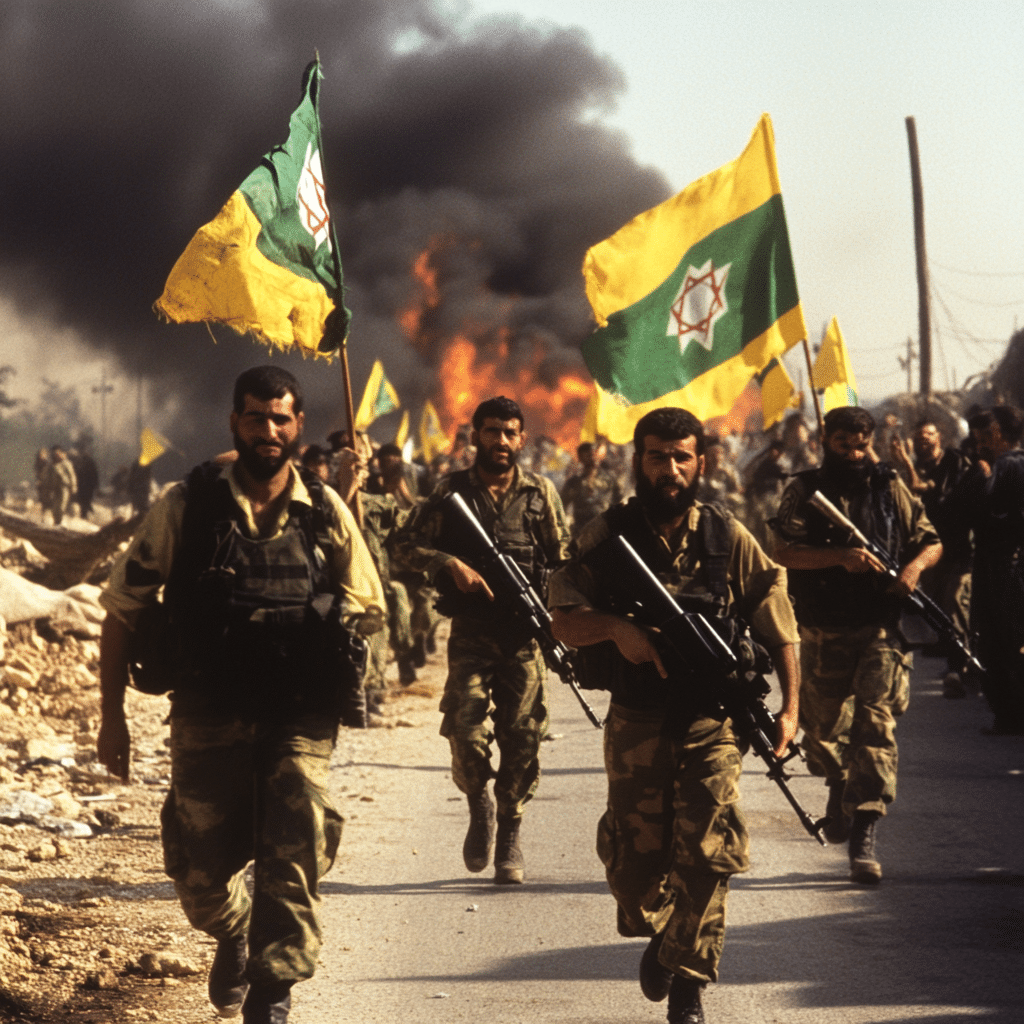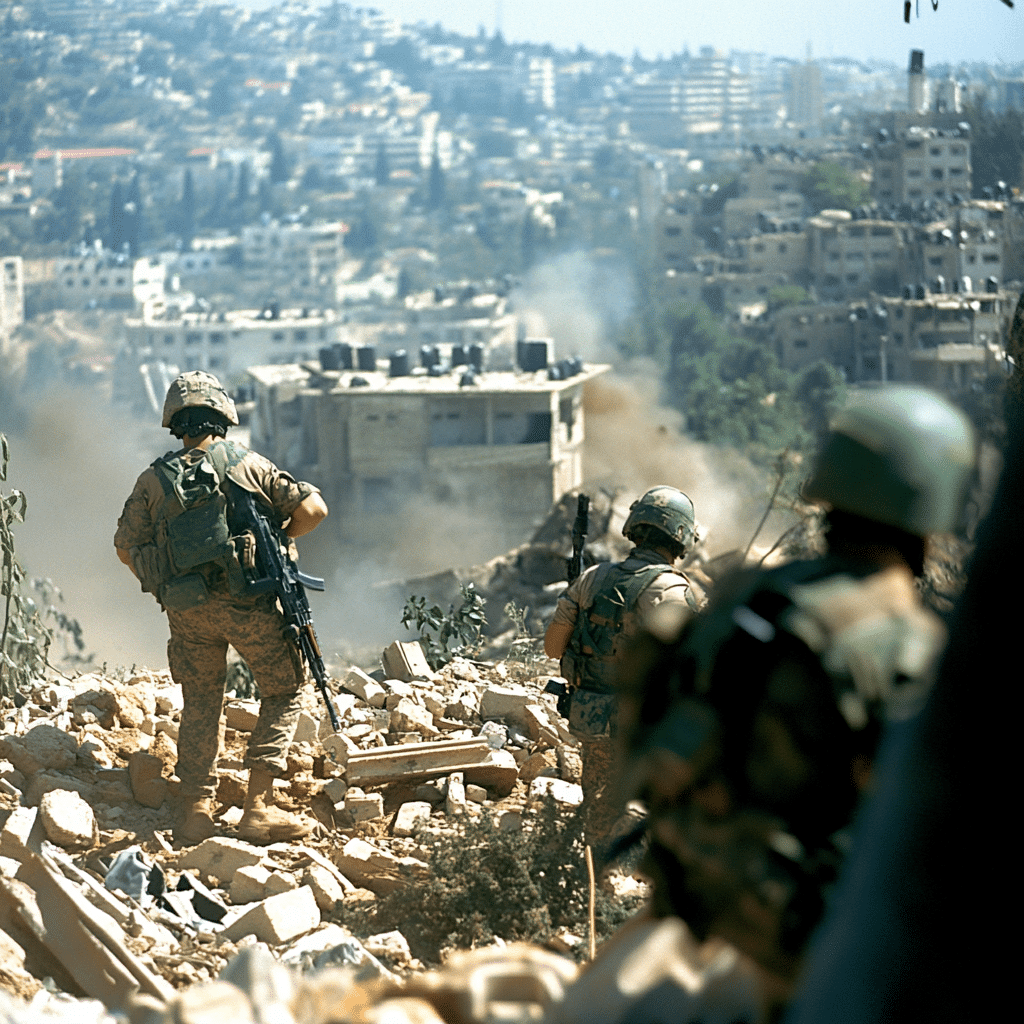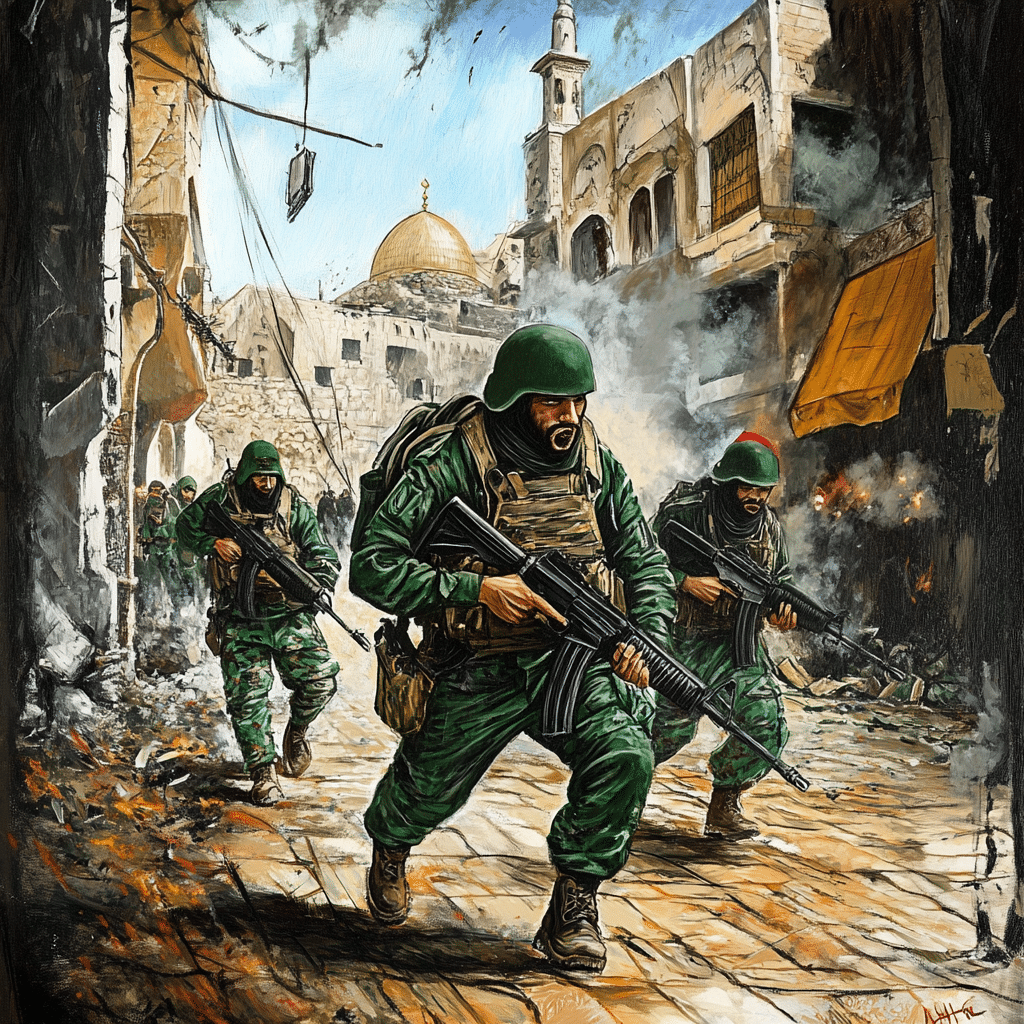The ongoing Israeli Hezbollah war has sharply escalated fears and uncertainties across the Middle East. With its roots deeply entrenched in historical grudges and intertwined with the geopolitical ambitions of powerful neighbors, this conflict has broad-reaching implications. As Israel and Hezbollah clash, the repercussions ripple through Iran and other nearby nations, sparking concerns of a potential Iran-Israel war.
The Israeli Hezbollah War: An Overview of Regional Tensions
The Israeli Hezbollah war has emerged from a complex stew of issues that impact not just Lebanon but the entire Middle East. The ever-present specter of conflict looms large, driving an urgent need for diplomatic solutions. The interplay between militant groups like Hezbollah and state actors like Israel complicates the pursuit of peace. Tensions are high, fueled by rumors of Iranian nuclear aspirations and the shifting allegiances of Arab nations.
This intricate conflict also presents the world with a stark reminder of how interlinked regional politics can be. From the military capabilities showcased by both sides to the humanitarian crises unfolding on the ground, the stakes have never been higher. Understanding how this war unfolds requires a nuanced look at several key factors that have shaped, and are continuing to shape, the dynamics involved.

5 Key Factors Contributing to the Israeli Hezbollah War
The roots of the Israeli Hezbollah war stretch back decades, particularly to the Israel Lebanon War of 1982. Hezbollah views itself as a resistance force, and its continued presence in southern Lebanon has led to sustained animosity. Compounding these tensions are unresolved territorial disputes, particularly over the Shebaa Farms, which remain contentious. These historical grievances make establishing lasting peace a tough nut to crack.
Iran plays an instrumental role in the current dynamics of the Israeli Hezbollah war. As a prime backer, Iran provides military hardware and financial resources to Hezbollah, effectively turning the group into an Iranian proxy. Recent discussions about Israel’s concerns regarding Iran’s nuclear ambitions have stoked fears. Many analysts suggest that this precarious support system could lead to further militarized confrontations.
Understanding the Israeli Hezbollah war isn’t just about local animosities; it’s also contextualized within broader regional power shifts. The normalization of ties between Israel and several Arab nations contrasts markedly with its ongoing hostilities with Hezbollah. In Lebanon, political instability and public dissatisfaction with governance add more fuel to the fire, complicating any attempts at peace.
Both Israel and Hezbollah have adapted their military strategies in response to each other’s actions. For instance, Hezbollah has begun employing advanced missile technology, while Israel continues refining its defense systems, such as the Iron Dome. This evolving landscape makes the conflict increasingly deadly. With tactical innovations at play, each engagement raises the stakes, pushing both sides toward potentially catastrophic outcomes.
The Israeli Hezbollah war carries consequences far beyond the boundaries of the Middle East. Major global players, including the United States and Russia, have vested interests in this chaos, complicating the situation further. As these powers vie for influence, the specter of a broader war involving Western interests and Iranian ambitions looms large. The global implications couldn’t be clearer: what happens in the Middle East could affect international stability.
The Intersection of the Israeli Hezbollah War and the Israel-Iran Nuclear Issue
The nexus between the Israeli Hezbollah war and the larger Israeli-Iran nuclear issue cannot be ignored. As tensions rise around Iran potentially obtaining nuclear capabilities, Israel sees this as a direct threat to its security. The Israeli government has been proactive, carrying out airstrikes against Iranian military targets in Syria, demonstrating how quickly escalations can occur. The intersection of these conflicts deepens regional instability and complicates an already contentious situation.

The Psychological Impact on the Region
The psychological toll of the Israeli Hezbollah war on local populations is substantial. Surveys indicate that anxiety levels in both Israel and Lebanon have skyrocketed. Citizens express extreme concern over safety, national stability, and fears of a broader conflict. Communities near the border have observed increased absenteeism in schools and reported trauma-related symptoms, suggesting that the specter of war has seeped into the very fabric of everyday life.
In the long term, this climate of fear threatens to reshape societal norms and trust in government actions. As residents grapple with anxiety and uncertainty, the implications stretch beyond mere military encounters. This mindset can inhibit efforts toward reconciliation and dialogue, ultimately keeping the region trapped in a cycle of violence and despair.
Future Scenarios: Prospects for Peace or Escalation?
Looking ahead, opinions diverge on what the future holds for the Israeli Hezbollah war. Some analysts see opportunities for a ceasefire, buoyed by ongoing diplomatic channels that hint at dialogue. However, ongoing tensions, like shifting Lebanese governance and ongoing negotiations over Iran’s nuclear program, could lead to further escalations. This uncertainty maintains the precarious balance that defines the region today.
While there may be parties advocating for peace, skeptics caution against over-optimism. Without substantive efforts tailored to address the root causes of conflict, the risk of future violence looms large. The stakes couldn’t be higher; a miscalculation could plunge the Middle East into a turmoil reminiscent of the Israel Lebanon War in the 1980s.
Reflecting on a Complex Landscape
The Israeli Hezbollah war is intricately connected to historical resentments, shifting political landscapes, and the larger dynamics of international relations. It underscores the urgent need for a nuanced understanding of the situation and proactive diplomatic efforts. Only through such measures can lasting peace be envisioned. The juxtaposition of military advancements and peace attempts showcases the complex juggling act that nations must engage in to navigate this explosive situation effectively.
As the world watches with bated breath, the reality remains that the path to peace is laden with hurdles. It highlights the importance of informed perspectives that recognize the deep-seated issues at play. As society grapples with fears and uncertainties, an enduring commitment to dialogue and engagement remains critical for fostering stability in one of the most tumultuous regions in the world.
Israeli Hezbollah War: Fun Trivia and Interesting Facts
Historical Context and Unexpected Connections
The ongoing Israeli Hezbollah War has historical roots that many might not be familiar with. Did you know that the conflict can be traced back to the late 1970s, influenced significantly by the Iranian Revolution? While political contexts evolve, it’s fascinating how certain global events shape regional tensions. Speaking of interesting historical contexts, if you’ve ever heard of San Vicente bungalows, it operates as a private members-only club—quite a different scene compared to the high-stakes world of Middle Eastern politics.
Pop Culture Reflections
You might find it surprising, but pop culture often mirrors global uncertainties. For instance, the intense narratives we often see in shows like Bob ‘s Burgers season 14 reflect a world that feels as volatile as regions caught in conflict. Just as viewers seek laughter and light moments amid chaos, people in conflict zones also crave normalcy and comic relief. Moreover, the war has made it into pop culture discussions, sometimes even overshadowing other notable figures, like the infamous El Chapo’s son, gaining media attention for entirely different reasons.
Animal Kingdom and The Prison System
The impact of warfare stretches far beyond the battlefield. The Hattiesburg Zoo, for example, raises awareness about how wildlife conservation efforts can falter in war-torn regions, demonstrating how conflicts unfurl impacts on biodiversity. On a grimmer note, the conditions in places like High Desert state prison often reflect societal failings exacerbated by conflicts, including those seen in the Israeli Hezbollah War.
In a lighter twist, even brands like Campbell Soup Company have had to adjust their marketing strategies to respond to shifting societal sentiments that arise during these turbulent times. Such examples show that while wars bring strife and fear, they can also lead to unexpected societal shifts and fascinating trivia tales that connect various walks of life.




